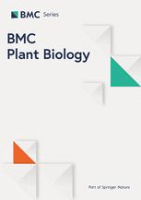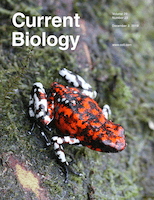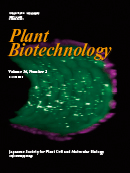
BMC PLANT BIOLOGY
metrics 2024
Unlocking the Secrets of Plant Biology
Introduction
BMC Plant Biology, published by BMC, is a leading open-access journal devoted to the field of plant science, presenting high-quality research that contributes significantly to the understanding of plant biology. Since its inception in 2001, the journal has established itself as a prominent platform for disseminating innovative research, achieving a commendable Q1 ranking in Plant Science within the 2023 Scopus quartiles, and ranking #39 out of 516 journals in the Agricultural and Biological Sciences category, indicating its substantial impact with a 92nd percentile ranking. Researchers, professionals, and students engaged in the study of plant biology will find a wealth of knowledge in its comprehensive scope, covering critical areas such as molecular biology, genetics, ecology, and biotechnology. The journal's commitment to open access ensures that cutting-edge research is available to a global audience, fostering collaboration and advancement in the field. BMC Plant Biology continues to inspire and facilitate growth in plant-related studies, making it an invaluable resource for anyone interested in the vibrant and essential domain of plant science.
Metrics 2024
 1.10
1.10 4.30
4.30 5.20
5.20 150
150Metrics History
Rank 2024
Scopus
IF (Web Of Science)
JCI (Web Of Science)
Quartile History
Similar Journals

Horticultural Plant Journal
Nurturing Insights in Horticulture and EcologyThe Horticultural Plant Journal, published by KEAI PUBLISHING LTD, stands at the forefront of horticultural research and innovation. With an ISSN of 2095-9885 and an E-ISSN of 2468-0141, this open access journal has been committed to disseminating significant findings in horticulture since 2015. As of 2023, it proudly holds prestigious Q1 rankings across multiple categories, including Biochemistry, Genetics and Molecular Biology, Ecology, and Plant Science, reflecting its impactful contributions to diverse scientific fields. Located in Beijing, China, the journal not only facilitates groundbreaking studies but also provides crucial insights into sustainability and environmental issues, being ranked in the top tiers of relevant disciplines. This makes it an invaluable resource for researchers, professionals, and students who aim to stay at the cutting edge of horticultural science, offering them the latest research that informs both academic understanding and practical application.

Plant Gene
Unraveling the Secrets of Plant ResiliencePlant Gene is an esteemed academic journal dedicated to the comprehensive study of plant genetics, genomics, and biotechnology. Published by Elsevier, this journal operates from its base in the Netherlands and has made significant strides since its inception in 2015, with a converged year span extending until 2024. As an integral resource in the field, Plant Gene is categorized in the Q2 quartile for Plant Science and Q3 for Biochemistry, Biotechnology, and Genetics as per the 2023 evaluations, reflecting its growing influence and quality of research. With an impactful presence in Scopus rankings—positioned at #145 in Plant Science—this journal serves as a platform for presenting innovative findings and advancing knowledge in plant science. Researchers, professionals, and students will find access to cutting-edge research articles that not only drive the scientific community forward but also offer invaluable insights into the genetic mechanisms underpinning plant development and resilience. While the journal currently operates under a subscription-based model, it aims to broaden accessibility and foster a diverse range of scholarly discussions in the ever-evolving field of plant genetics.

Plants-Basel
Championing open access for vital ecological insights.Plants-Basel is a distinguished open access journal published by MDPI since 2012, offering a comprehensive platform for researchers and professionals in the field of ecology, plant science, and evolutionary biology. Based in Switzerland, this journal has established itself as a leader in disseminating high-quality research, evident through its impressive rankings in multiple categories, including Q1 in Ecology and Plant Science for 2023. With a substantial impact factor and a dedicated focus on advancing our understanding of plant interactions, ecosystems, and sustainable practices, Plants-Basel is vital for scholars seeking to contribute to these critical fields. The journal's commitment to open access enhances visibility and accessibility, facilitating the widespread sharing of knowledge essential for addressing contemporary ecological challenges.

PHYSIOLOGY AND MOLECULAR BIOLOGY OF PLANTS
Pioneering Discoveries in Plant PhysiologyPHYSIOLOGY AND MOLECULAR BIOLOGY OF PLANTS, published by SPRINGER, is a vital journal focused on the advancing field of plant science. Featuring research that spans physiology, molecular biology, and their applications in agriculture, this journal is pivotal for academics, professionals, and students keen on understanding plant processes and enhancing crop production. With an ISSN of 0971-5894 and an E-ISSN of 0974-0430, this journal is recognized for its scholarly significance, ranking in the Q3 category in Molecular Biology, Q2 in Physiology, and Q1 in Plant Science as of 2023. The journal maintains a strong position in the Scopus rankings, with notable percentile rankings including 87th in Plant Science. Established in 2000, this publication aims to foster the dissemination of cutting-edge research by providing a platform for open discussion and knowledge sharing about plant physiology and molecular mechanisms. While it does not currently offer open access options, its comprehensive studies and reviews serve as an essential resource for enhancing our understanding of plant biology.

CURRENT BIOLOGY
Illuminating Pathways in Agricultural and Biological ResearchCURRENT BIOLOGY is a premier academic journal published by CELL PRESS, dedicated to a broad spectrum of fields within biological sciences. With an ISSN of 0960-9822 and E-ISSN 1879-0445, the journal has established itself as a vital resource for groundbreaking research and advancements since its inception in 1991. CURRENT BIOLOGY boasts high prominence in its categories, securing a Q1 quartile ranking in Agricultural and Biological Sciences, Biochemistry, Genetics and Molecular Biology, and Neuroscience, indicating its significant impact and relevance in these fields. Notably, it ranks #9 out of 221 journals in Agricultural and Biological Sciences, placing it in the 96th percentile, while also maintaining a strong presence in the Biochemistry category with a rank of #26. Researchers and professionals can rely on CURRENT BIOLOGY for comprehensive reviews, innovative methodologies, and crucial scientific developments that bridge theoretical knowledge with practical applications. The journal continues to play an essential role in enhancing the global dialogue in biological research, making it indispensable for students, academics, and industry experts aiming to stay at the forefront of the rapidly evolving landscape of life sciences.

Tropical Plant Biology
Exploring the Wonders of Tropical FloraTropical Plant Biology is a premier academic journal published by Springer, dedicated to advancing the understanding of tropical plants and their ecological significance. With an ISSN of 1935-9756 and an E-ISSN of 1935-9764, this journal serves as a vital platform for researchers, professionals, and students focused on the fields of Genetics and Plant Science. Notably recognized in 2023 as a Q2 journal in Plant Science and Q3 in Genetics, it ranks 171st out of 516 in Agricultural and Biological Sciences and 227th out of 347 in Genetics according to Scopus. The journal encompasses a diverse range of topics, offering insights into tropical plant biology, ecology, conservation, and biodiversity. Although it does not currently operate under an open-access model, it remains an essential resource for anyone passionate about tropical ecosystems and their intricate relationships. With contributions spanning from 2009 to 2024, Tropical Plant Biology continues to foster scholarly discourse and innovation in the field.

BIOLOGIA PLANTARUM
Cultivating Knowledge in Horticulture and BeyondBIOLOGIA PLANTARUM, esteemed within the realms of horticulture and plant science, is a leading academic journal published by the Academy of Sciences of the Czech Republic, Institute of Experimental Botany. Established in 1959, this journal showcases innovative research and advancements in plant biology, focusing on a spectrum of topics including plant physiology, genetics, and biotechnology. With an impressive Scopus ranking in Horticulture (Rank #41/115) and Plant Science (Rank #221/516), it holds a significant place in the academic community, reflected in its Q2 and Q3 status within its respective categories. Although it is not open access, authors are encouraged to contribute to the growing body of knowledge that supports sustainable practices in agriculture and horticulture. Published in the Netherlands, BIOLOGIA PLANTARUM continues to foster collaboration and dialogue among researchers, professionals, and students dedicated to understanding and advancing plant sciences.

Plant Biotechnology
Cultivating Insights for a Greener Future.Plant Biotechnology is a distinguished journal published by the Japanese Society for Plant Cell and Molecular Biology, committed to advancing the field of plant biotechnology through the dissemination of high-quality research. With an ISSN of 1342-4580, this journal caters to a global audience interested in agronomy, crop science, and plant molecular biology. The journal has achieved notable rankings, including Q2 in Agronomy and Crop Science and Q2 in Plant Science, underscoring its relevance and impact in these fields according to the latest 2023 metrics. Furthermore, it holds a respectable position within Scopus rankings across multiple categories, indicating its contribution to the academic community. Although it is not an open-access journal, its regular publications, spanning from 1997 to 2024, feature cutting-edge studies that explore innovative approaches and technologies in plant science. Researchers, professionals, and students will find Plant Biotechnology an essential resource for staying informed on significant advancements and trends in plant research.

Frontiers in Plant Science
Advancing the frontiers of plant biology.Frontiers in Plant Science is a premier open-access journal dedicated to advancing the understanding of plant biology, covering a broad spectrum of topics including physiology, ecology, and biotechnology. Published by FRONTIERS MEDIA SA in Switzerland, this journal has established itself as a key resource in the field of plant science, boasting an impressive impact factor and ranking in the Q1 category for plant science as of 2023. With its Scopus rank of 61 out of 516 in both Agricultural and Biological Sciences, the journal is recognized for its quality and relevance, being in the 88th percentile among its peers. Since its inception in 2010, Frontiers in Plant Science has embraced an open-access format, ensuring that cutting-edge research is readily available to scientists, professionals, and educators around the globe. The journal aims to foster innovative research and collaboration within the plant science community, making it an essential publication for those looking to stay at the forefront of the discipline.

PROTOPLASMA
Bridging Plant Science and Medicine through Innovative ResearchPROTOPLASMA is a prestigious academic journal published by Springer Wien, dedicated to advancing knowledge in the fields of Cell Biology, Plant Science, and related areas of Medicine. Established in 1926 and continuing through 2024, this journal boasts a rich history of scholarly contributions and is currently indexed with a notable ranking in various disciplines: it stands in the top quartile (Q1) in Plant Science, the second quartile (Q2) in miscellaneous Medicine, and the third quartile (Q3) in Cell Biology as of 2023. With robust Scopus rankings placing it in the 86th percentile in Plant Science and a solid position in Cell Biology, PROTOPLASMA is recognized for its commitment to high-quality research and innovative findings. Although the journal does not offer open access options, it remains a valuable resource for researchers, professionals, and students seeking to explore the cellular and molecular underpinnings of plant life and its implications in broader biological contexts. Based in Austria, PROTOPLASMA serves as a vital forum for disseminating pioneering research that shapes the future of scientific inquiry in its respective fields.